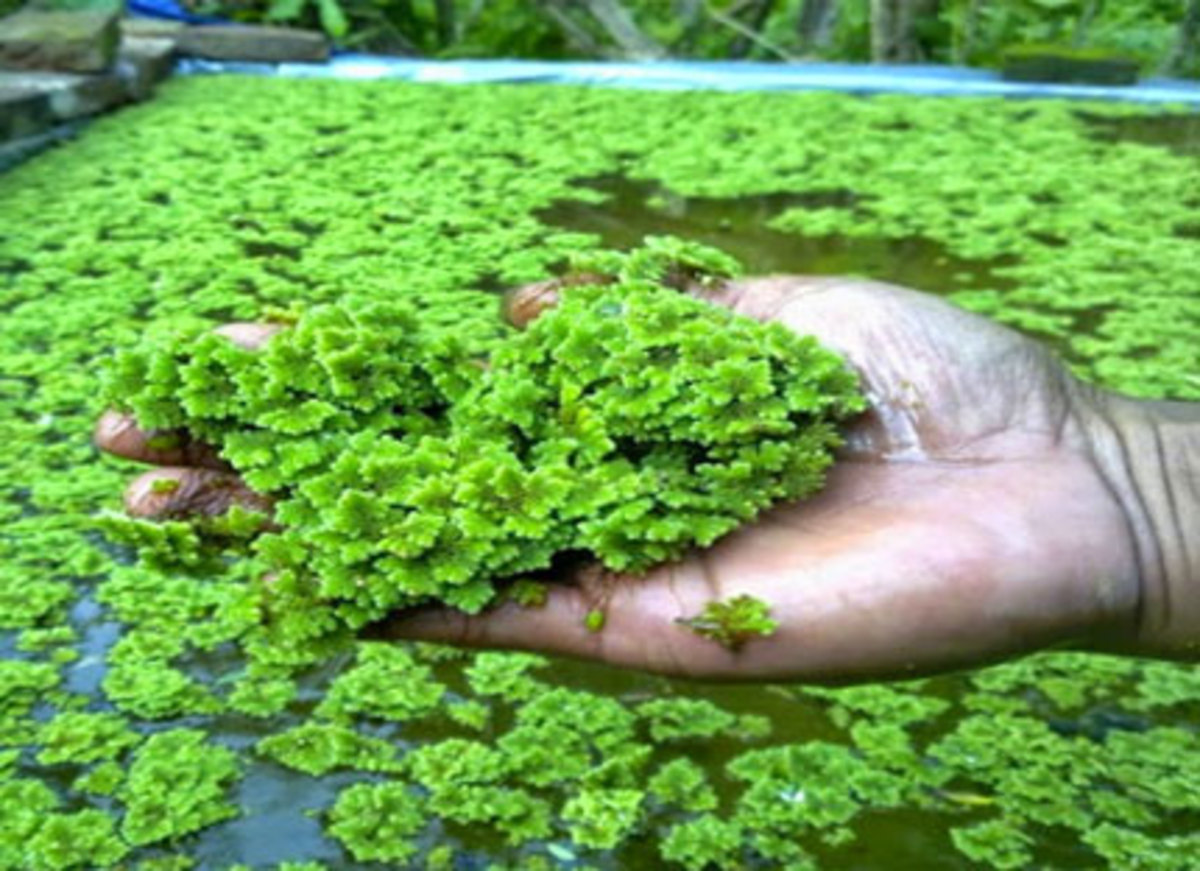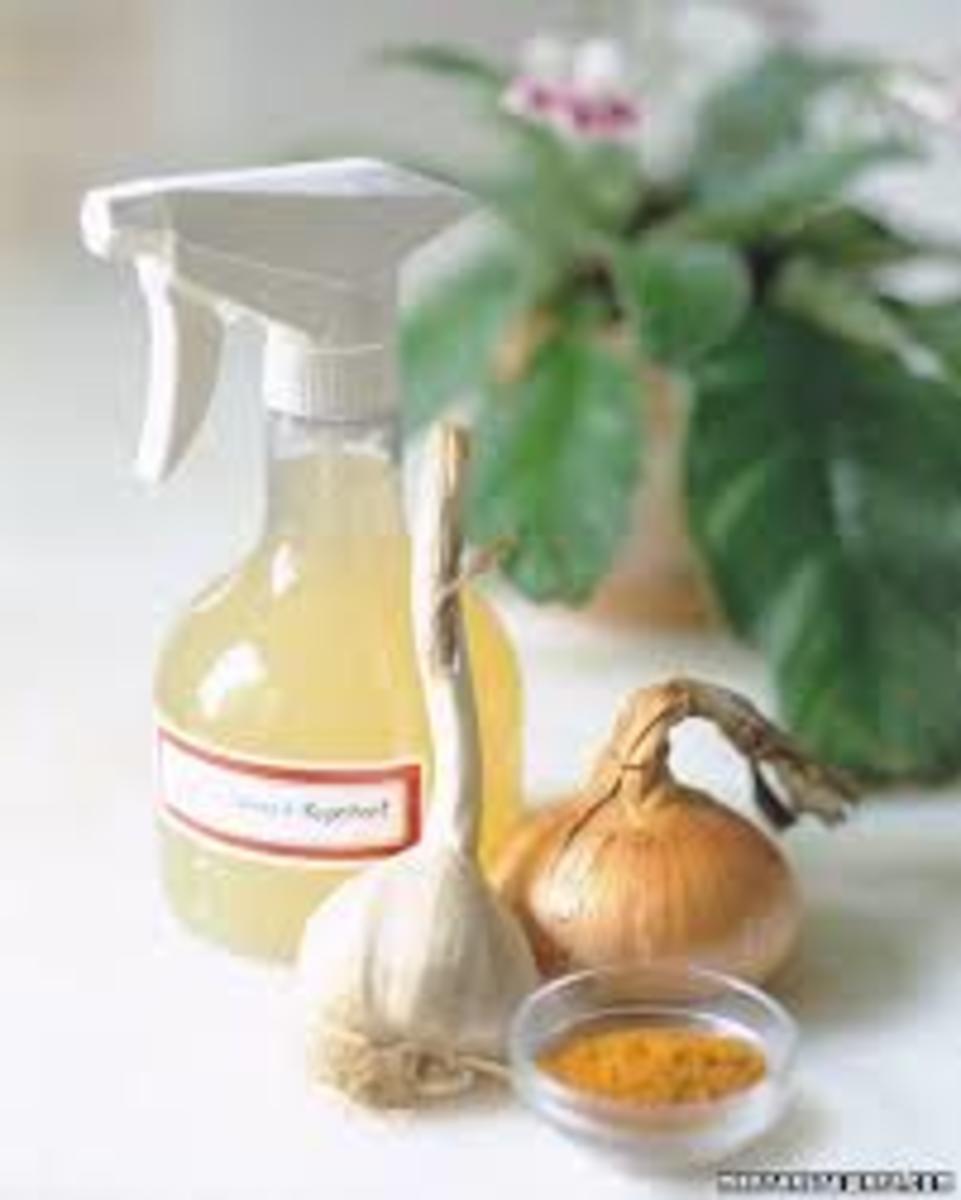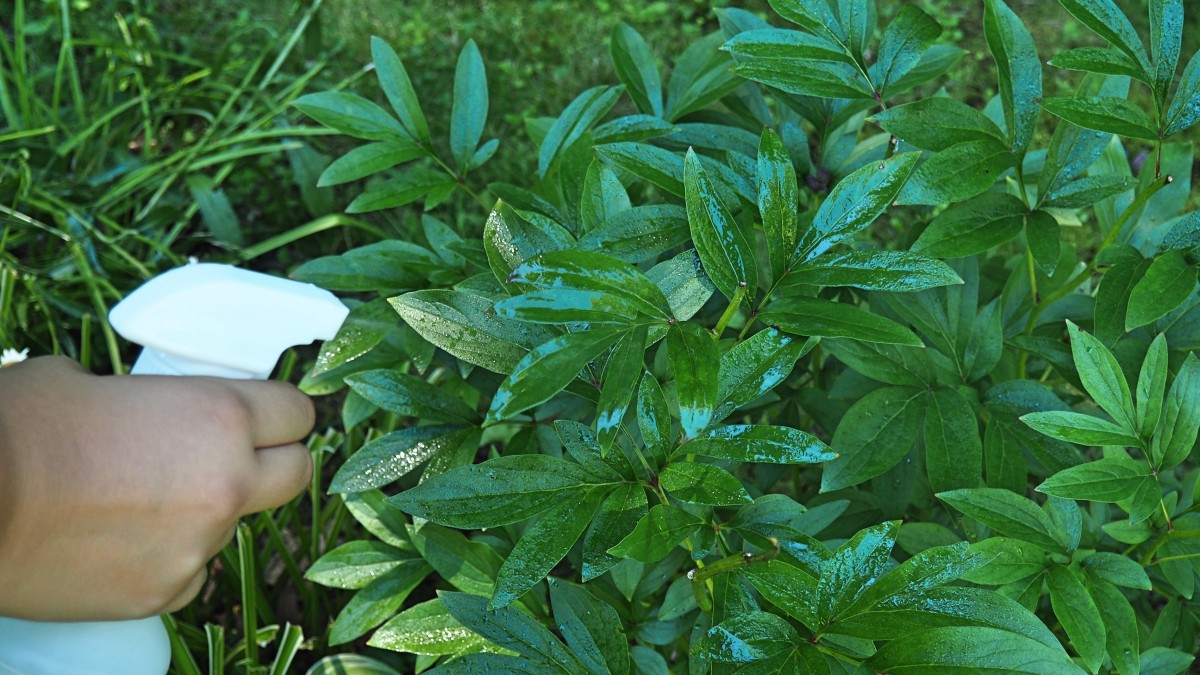What Does Organic Mean?
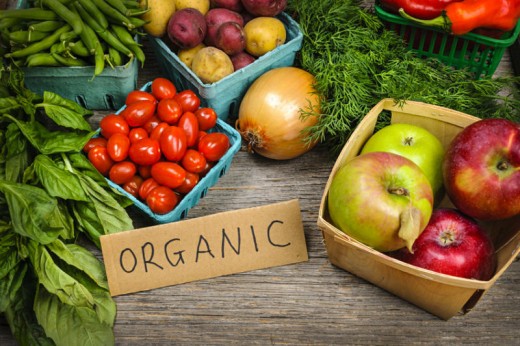
EPA Definition of Organic
According to the EPA "Organically grown food is food grown and processed using no synthetic fertilizers or pesticides. Pesticides derived from natural sources (such as biological pesticides) may be used in producing organically grown food."
History of Organic Food
Organic food production began in the US in the 1940s. Since then, it has grown to exceeding lengths. J.I. Rodale is commonly referred to as the founder of the modern organic movement. He made leaps and bounds in the research regarding "non-chemical" farming techniques as well as the invention of a organic production method.
In later years, regulations were discussed and enacted in various forms in various states. By the late 1970s, several definitions of "organically grown" surfaced throughout the United States. However, in 1990, Congress enacted the Organic Foods Production Act (OFPA) to develop a nation-wide standard. The OFPA regulated these standards to the USDA which currently monitors the production of organically grown foods. The act lead to the installment of the National Organic Program (NOP) and The National Organic Standards Board (NOSB) within the USDA.
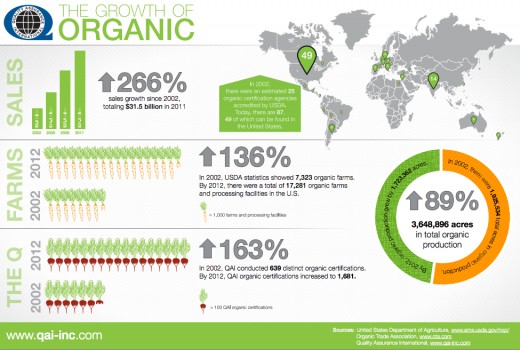
- http://www.ams.usda.gov/AMSv1.0/nop
Information regarding the National Organic Program.
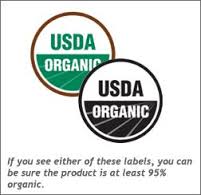
National Organic Program
The National Organic Program is part of the USDA which sets the marketing standards regarding the use of the term "organic". The NOP aims to ensure the safety of the US consumer and the integrity of the USDA. Some of their key roles include: developing regulation on organic standards, managing the list of allowed and prohibited substances, establishing organic import and export policies, investigating and aiding in violation complaints, facilitating the work of the NOSB and serving the organic community.
The NOP defines organic as the following:
Organic food is produced by farmers who emphasize the use of renewable resources and the conservation of soil and water to enhance environmental quality for future generations. Organic meat, poultry, eggs, and dairy products come from animals that are given no antibiotics or growth hormones. Organic food is produced without using most conventional pesticides; fertilizers made with synthetic ingredients or sewage sludge; bioengineering; or ionizing radiation. Before a product can be labeled "organic," a Government-approved certifier inspects the farm where the food is grown to make sure the farmer is following all the rules necessary to meet USDA organic standards. Companies that handle or process organic food before it gets to your local supermarket or restaurant must be certified, too.
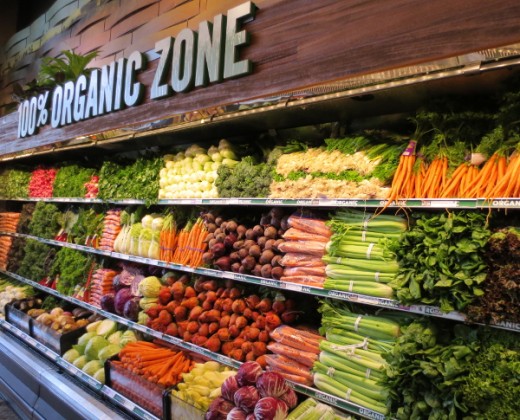
So What Does Organic Mean? The National Standards
The term "organic" refers to the way that a product was grown and then sold to you, the consumer. This includes the use of pesticides, artificial ingredients and the methods used in soil and water conservation.The NOP prohibits the use of genetic engineering,sewage sludge, irradiation and most synthetic fertilizers and pesticides. At the same time, non-organic ingredients must be specifically allowed. The USDA recognizes four categories of organic farming including: crops, livestock, processed/multi-ingredient products and wild crops.
The USDA provides a brief overview of the regulations seen below. An extensive list of USDA "organic" standards can be found here.
Organic crops. The USDA organic seal verifies that irradiation, sewage sludge, synthetic fertilizers, prohibited pesticides, and genetically modified organisms were not used.
Organic livestock. The USDA organic seal verifies that producers met animal health and welfare standards, did not use antibiotics or growth hormones, used 100% organic feed, and provided animals with access to the outdoors.
Organic multi-ingredient foods. The USDA organic seal verifies that the product has 95% or more certified organic content. If the label claims that it was made with specified organic ingredients, you can be sure that those specific ingredients are certified organic.
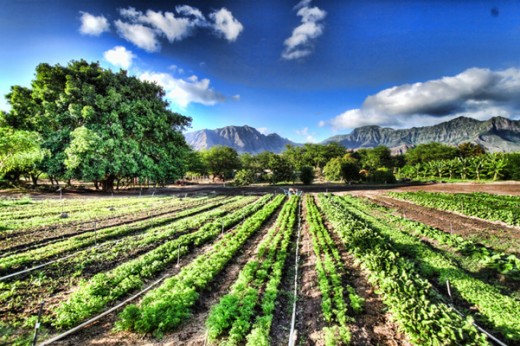
Is "Organic" the Same Thing as "Natural"?
No, these two words are not synonymous. Many companies use the word "natural" to entice customers who look for healthy pesticide-free food options these days. "Natural" simply means foods that are minimally processed and free of synthetic preservatives and artificial additives. Unlike "organic" foods, these products do not meet any additional food standards outside from the ones applied to all food substances under the USDA.
While "organic" refers to foods without the additions of synthetic preservatives, artificial additives, etc. like that of "natural" foods, additionally, "organic" refers to the farming methods. Organically grown foods meet the NOP guidelines which promote biodiversity and stress sustainable farming.
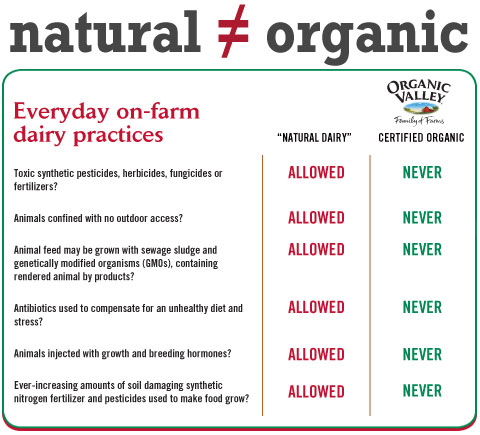
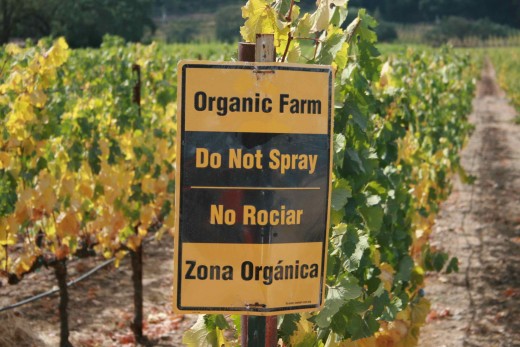
What is Organic Farming
As previously mentioned, the farming techniques set "organic" apart from simply "natural". The USDA covers regulations from the farm to the table and every step in between. Included are the techniques used to produce the food. The USDA currently certifies over 25,000 farmers and businesses who cultivate organic products. According to the USDA
“Organic farming entails:
- Use of cover crops, green manures, animal manures and crop rotations to fertilize the soil, maximize biological activity and maintain long-term soil health.
- Use of biological control, crop rotations and other techniques to manage weeds, insects and diseases.
- An emphasis on biodiversity of the agricultural system and the surrounding environment.
- Using rotational grazing and mixed forage pastures for livestock operations and alternative health care for animal wellbeing.
- Reduction of external and off-farm inputs and elimination of synthetic pesticides and fertilizers and other materials, such as hormones and antibiotics.
- A focus on renewable resources, soil and water conservation, and management practices that restore, maintain and enhance ecological balance.”
To summarize, organic farmers use unconventional means to ensure quality - this may include water and soil conservation to reduce pollution, crop rotation, the use of organic feed and the use of ecology to target specific pests with other harmless animals which prey upon them.
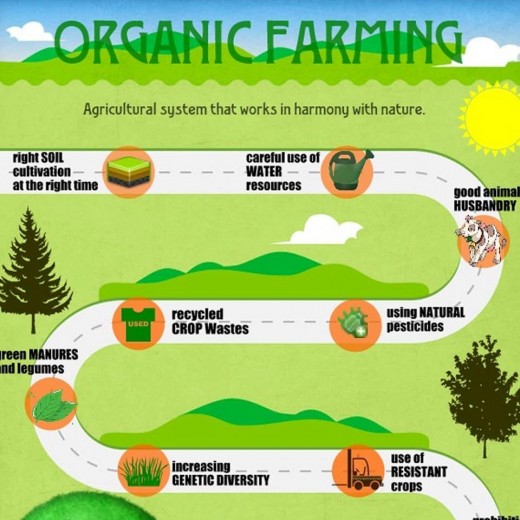
Do you buy organic?
How do I Know if Something is Organic?
Check the label! Any product labeled "organic" must meet USDA regulation set forth by the NOP; however, producers who sell less than $5,000 in organic products are exempt from the USDA certification though they still must meet USDA standards.
Vegetables, fruits, eggs and other single-ingredient foods that are 100% organic can be labeled as such. Foods containing more than one ingredient may require additional wording which could include:
- 100 percent organic: Products that are completely organic/made with all organic ingredients.
- Organic: Products that are at least 95% organic.
Make sure to read labels carefully and ask questions to the seller if any confusion still remains. While it is not yet scientifically proven that organic foods are healthier than others, there are concerns over the use of pesticides and additional additives which may pose health issues.


